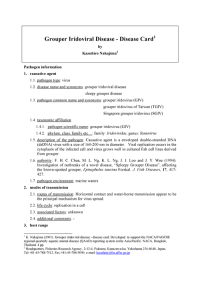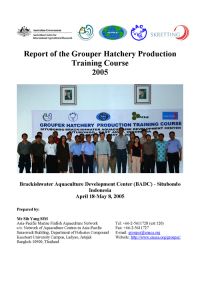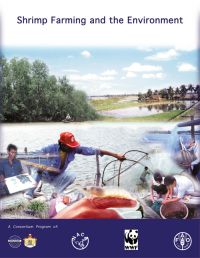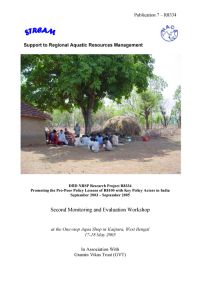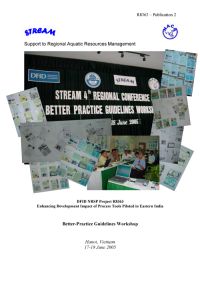Recognising the importance of iridoviral disease, in terms of its potential to spread and cause economic loss, grouper iridoviral disease was included for listing in the quarterly aquatic animal disease (QAAD) list under any other diseases of importance effective for reporting from first quarter of 2003. This disease card is developed to provide information to national authorities and support the regional NACA/FAO/OIE QAAD reporting system.
This is the report of the 3rd Regional Grouper Hatchery Production Training Course, which was conducted at the Brackishwater Aquaculture Development Center, Situbondo, East Java, Indonesia from April 18-May 8, 2005. There were a total of 17 participants coming from Australia, Brunei Darussalam, Indonesia, Malaysia, Maldives, Marshall Islands, Singapore, and Vietnam. The training consisted of a mixture of theory, practical and field trips for the participants.
This case study reviews shrimp aquaculture development in East Africa and the Middle East, as well as the problems and prospects for future development. Given that shrimp aquaculture development has not yet occurred on any significant scale, although increasing, it should be possible to learn the lessons from other parts of the world and apply them in these contexts. The countries in this report are: Egypt, Iran, Mozambique, Madagascar with some information on other countries in both regions.
The objective of this project, in taking forward the achievements of the earlier projects, is to develop and promote mechanisms for the delivery of rural services that can reach and benefit marginalised poor men and women of scheduled tribes and scheduled castes. This workshop in Kaipara Village was meant to “understand the quality of performance in service delivery to poor people through the project monitoring and evaluation system.” Significant change stories were prepared by participants.
This workshop report is an output from an additional uptake and promotion activity of the DFID NRSP Project R8363 “Enhancing Development Impact of Process Tools Piloted in Eastern India”, which was extended to the end of August 2005. It describes a Better-Practice Guidelines (BPG) Workshop which was the latest project activity to share process tools for Building Social Capital (Self-Help Groups), Consensus-Building and Information Access Surveys. Since the project began, the BPG genre has expanded from the original three concepts shared, to currently twenty-five BPGs prepared not only by STREAM but also by farmers and fish producers. The genre has also been adopted by other organisations, including the DFID-funded Western Orissa Rural Livelihoods Project to share rural aquaculture techniques, and Stirling University to support the uptake and promotion of their work on Self-Recruiting Species and Local Resource User Groups.
The workshop was attended by STREAM National Coordinators and Communications Hub Managers from Cambodia, India, Indonesia, Myanmar, Nepal, Pakistan, Philippines, Sri Lanka and Vietnam, and STREAM Regional Office colleagues based in Thailand, Australia and India. The participants reviewed and assessed the BPGs and Policy Briefs in Bahasa Indonesia, Bengali, English, Hindi, Ilongo, Khmer, Myanmar, Nepali, Oriya, Sinhala, Urdu and Vietnamese. They also began to plan how the uptake and promotion of these tools may be specifically supported in each national context as well as planning the development of further BPG and PB topics.
